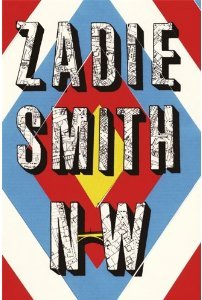Zadie Smith’s NW: Opportunities knocked
Kilburn, Willesden, Harlesden. London’s north-west neighbourhoods pulse through this triptych of interconnected tales. Their council estates and streets are the building blocks and threads of a narrative that sweeps its way through ideas of opportunity, identity and class.
Zadie Smith’s affection for the area, her area (at least before she moved to New York), is clear. Her characters never escape it, whether they want to or not and irrespective of the rare foray into central London. Readers, especially those living locally, may choose to revel in the fecundity, though for many of the young professionals who now call NW home, it may be easier to observe this multicultural landscape dispassionately; just as it’s possible to spend time on Kilburn High Road yet never engage with anyone meaningfully.
“A local tip: the bus stop outside Kilburn’s Poundland is the site of many of the more engaging conversations to be heard in the city of London.”
Gazing down on NW from such a height would be a disservice to Smith’s abilities. The crowning glory of this book is its dialogue, internal or conversational (and the two often merge). Rich in vernacular and alert to linguistic trends (“It was the year everyone was saying that such and such a person was ‘their rock'”), the conversations peppered across the pages are those you hear on the streets.
Yet, for all the local detail, and the acute, native understanding of lives lived here, the setting ends up a backdrop when it feels as if Smith wanted it to be a character in its own right. Her prose doesn’t help here: the conflict between self-aware changes of pace, style and form, and the natural ebbs and flows she creates in dialogue left me tripping up; forcing me to stand back from the story rather than fall into it as if into the arms of a lively Kilburn pub.
NW has had some lofty accolades heaped on it, but it certainly hasn’t grabbed everyone. It has some gorgeous vignettes but is never the sum of its parts. It has interesting things to say about opportunity and aspiration, but fell short of making me think new thoughts, which I feel any great novel should do. It has some entertaining and insightful characters, but they are often the co-stars rather than the protagonists. Ultimately, it feels more like a book set at a precise time rather than one set in a particular place.
In a final, unsettling, move, it ends abruptly.
NW
Zadie Smith
Penguin, 2012



Comments
Zadie Smith’s NW: Opportunities knocked — No Comments
HTML tags allowed in your comment: <a href="" title=""> <abbr title=""> <acronym title=""> <b> <blockquote cite=""> <cite> <code> <del datetime=""> <em> <i> <q cite=""> <s> <strike> <strong>